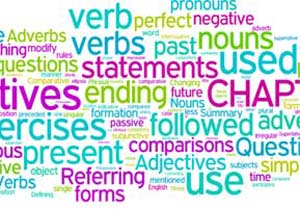 |
|
 |
|
| Visite: 1551 | Gradito: |
Leggi anche appunti:La scoperta inglese di o-taheite: captain james cookLA SCOPERTA INGLESE DI O-TAHEITE: CAPTAIN JAMES COOK Come accennato Il fu Mattia pascalIl fu Mattia pascal Trama Il protagonista, Mattia Pascal, lavora in Chichibio cuocoChichibio cuoco La sesta giornata Ŕ dedicata alla battuta di spirito. L'episodio |
 |
 |
Daniel Defoe was born in London in September 1660. In 1685 he took part in the Duke of Monmouth's abortive rebellion against the Catholic King James II. In 1702, with the Queen Anne, Defoe's situation changed and, when he published a satirical pamphlet in defence of the Dissenters, he was fined. In 1719 he turned to prose fiction, not for literary purposes, but considering it as a kind of business activity which paid better than many others. When he died, he had lived through political controversies, religious persecutions, transformations and wars.
A tradesman, a spy, a journalist and a writer, he had accumulated many contrasting experiences, some of which he put into his writings. These are some of his most important works:
The Rewiew: it was political in character;
The Shortest way with the Dissenters, a clear attack on ecclesiastical intolerance;
Robinson Crusoe, the account of the protagonist's life on a desert island;
Moll Flanders, the autobiography of a woman who survived several husbands, turned prostitute but finally became rich and respectable;
A Journal of the Plague Year, an account of the Plague raging in London in 1665.
To justify his works, he decided to write true stories, all supposed containing a moral lesson. In the preface to each novel, he insisted that his purpose had been moral desire to convert the vicious and to warn the innocent. His novels shared the some features: they are presented in the form of a diary or autobiography; there isn't a real plot; the characters do not develop during the story: it is only their external condition which changes; there is a hero or a heroine, compelled to struggle against many misfortunes.This feature was to be considered with the Puritan idea than man must find his salvation, and also with the image of the Augustan new man, the self-made individual; the characters usually stand alone, not only physically, like Crusoe, but also socially as Moll and Roxana; there is very little despair even in the most tragic situations; all the novels contain prayers and expression of gratitude to God; picaresque elements which build up the satire of 18th-century English society.
The best known of Defoe's novels is Robinson Crusoe. The book is thought to be based on a real event: the experience of Alexander Selkirk, a seaman put ashore on the desert island in the pacific Ocean. R. C. is a travel narrative and it is made up of 3 separate sections; the first relates how Robinson leaves his family at the age of 19 and goes away to make a fortune. He lands in Brazil, where he becomes a planter. One day, during an expedition, he is shipwrecked on a remote island. The second section describes Robinson's life on the island. The third describes Robinson's return to Europe.
The second part, related in the form of a diary-like account of Robinson's experiences how he is able to re-create the world he has left behind him and how he is finally rescued by an English ship which takes him back to England.
The passage " Crusoe's safe landing on shore" is one of the best examples of pure fiction able to engross the reader with its matter-of-fact style. Crusoe has just landed safe and sound on the island; in fact he succeded in saving himself reaching an island. He immediately looked around the area and found a safe place on the top of a tree, "lodging for the night", where he could spend the night. Moreover, from words as comfortably and refreshed we can understand that he had a quiet sleep. The next morning the storm had finished and he built a raft to reach the broken sleep and took out clothes, food, tools and all the other things he could find and he needed. Defoe's journalistic style indicated the distances about the ship from the shore, the inlet of water, which prevents Crusoe from reaching the boat. We also got some information as to what Crusoe was wearing when he was wrecked. Besides Defoe describes many practical things that Crusoe did when night fell. Anyway, we have to add thatá he has sometimes been defined as a prudent hero, who, unlike Don Quixote does only what he can do within the limited range of his possibilities. Moreover Crusoe didn't yield to dispair because according to the puritan ideas, despairing means back confidence in God's providence.
Richardson
Samuel Richardson was born in 1689. He was sent to London and apprenticed to a printer. After that, he became Master of the Stationers' Company and Law Printer of the King. He spent all his life in London, where he died in 1761. Richardson took to novel-writing almost by accident. In 1739, two other printers asked him to compile a little volume of model letters to be used by semi-educated coutry people. Richardson, who had a natural talent for letter writing, accepted the proposal but soon realized that he theme of the letters was material for a complete novel. Remembering a true story of a servant girl, he decided to give up the work he had been commissioned to write. In two months, then he wrote the first two volumes of Pamela, one of the three novels he produced: Pamela, or Virtue Rewarded, in four volumes. The novel narrates how Pamela Andrews has to defend herself from the advances of her mistress's son Mr B, who finally falls in love with her and marries her.
A second part was added to the novel, showing Pamela as a happy and virtuous wife. This second part isn't so important as the first.
Clarissa Harlowe, in seven volumes. Unlike Pamela, virtue here is persecuted and finally defeated. Clarissa is in fact abducted and raped and dies of grief and shame.
Sir Charles Grandison, in seven volumes. The novel is centred on a man who is able to marry the woman he loves.
Richardson's novels follow the same features: the novels are based on a single story, made up of everyday events; the novels are set in a domestic environment, confined to interiors; their male characters are neither heroic knights nor picaresque rogues or outcasts; there is plenty of realism, but, unlike Defoe, it is used in the treatment of characters and situations; all the novels reveal Richardson's psychological insight into human behaviour; his novels are all love stories with happy or tragic endings; they all share a moralizing purpose; they are all written in epistolary form.
Richardson wrote the " Novel of Manners", a kind of novel with a precise didactic purpose. Nothing like this had ever been written before, with such wealth of passion, subjectivism and self-revelation. Richardson's novels were intended for middle-class people and showed them how to reach success with his ambiguous mixture of reality and illusion. Moreover he contrastedá the honest bourgeoisie with the corrupt aristocracy. Richardson didn't realize this feature: coming into contact with the upper class, the bourgeois citizen often ended up by losing his or her innocence. The longest work in English fiction, Clarissa, can be divided into 3 parts: Clarissa, disobeying her family, refuses to marry an elderly, ugly but wealthy man, Mr Solmes, as she is in love with Lovelace; Lovelace is an unscrupulous rake who manages first to drug and then rape her. In a second time he proposes to marry her but she refuses; abandoned by her family, Clarissa finally dies while Lovelace will be killed in a duel.
The passage offers an example of Richardson's melodramatic style. We can see the final triumph of Clarissa, humiliated and defeated in life. She finds in death her only escape from a hostile world. Clarissa dies like a martyr, looking forward to future supernatural joys and rewards. Richardson devotes pages and pages to its description, filling the room with a crowd of people who provide the necessary audience for such an edifying event. Besides being a metaphor for the lost innocence of the bourgeoisie, Clarissa can also be read as a document on the condition of 18-th century woman and her first struggles for emancipation. Pamela is an ethical model to follow because he marries the man she loved.
Anyway, Clarissa's misfortunes and her death are genuine warning and remind us of the Puritan idea of punishment. But R. defended the "status quo" which punished all those who dared to break precise codes of behaviour. This ambiguity is often combined with a certain indulgence in morbid details and situation.
 |
| Appunti su: |
|
| Appunti Educazione pedagogia |  |
| Tesine Grammatica |  |
| Lezioni Inglese |  |